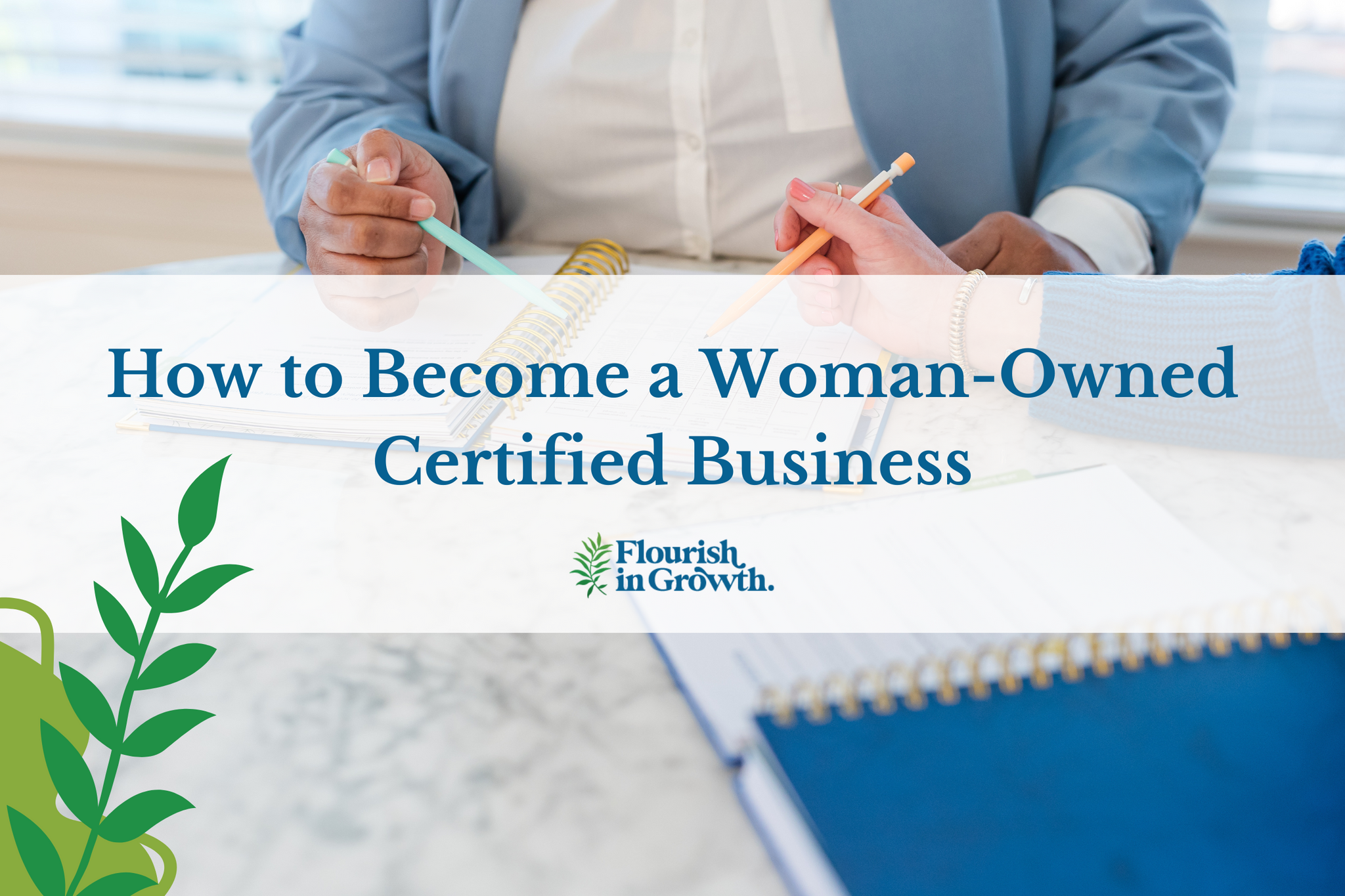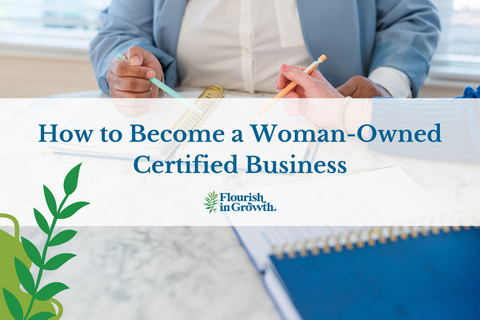How to Become a Woman-Owned Certified Business
If you are a woman-owned business, you may be wondering how to become a woman-owned certified business. Below, we will cover what it means to be a woman-owned certified business, why certification could benefit your company, the different types of certifications, common misconceptions, and key considerations before pursuing certification.
What is a Woman-Owned Certified Business?
A woman-owned certified business is one that has received official certification, typically from a state or federal agency, verifying that a woman is the principal owner and operator. Some private companies also assist small businesses in obtaining their state or federal certification.
While you don’t need certification to state that you are a woman-owned business, there are situations where having an official certification can be beneficial. Certification helps businesses qualify for contracts, funding, and networking opportunities designed to promote diversity in business.
To qualify for certification, most programs require that:
- A woman (or women) owns at least 51% of the business.
- A woman is actively involved in the daily operations and decision-making processes.
- The woman owner holds the highest title within the company, such as CEO or President.
History of Women Business Owners
The history of women business owners being intentionally excluded from doing business in the United States dates back to early colonial times. Coverture didn't consider women to be their own legal identity and women largely weren’t able to legally own property in many cases. The practice of coverture was gradually abolished in the late 19th and early 20th centuries. Coverture was adopted from English law and also has Spanish and French roots.

Before colonization, many Native American women had equal rights and economic independence, exercising business and trade up to 1,000 years ago.
It wasn’t until 1988 that women business owners in the U.S. gained the legal right to obtain a business loan without requiring a male co-signer. Today, women own about 35% of businesses with employees and receive 32% of business funding.
The Small Business Administration (SBA) has set a goal to allocate 5% of federal contracting dollars to Women-Owned Certified Businesses. However, this goal has only been met twice in the last 20 years. That means the federal government continues to spend 95% or more of its contracting dollars with male-owned businesses, despite women owning over a third of employer businesses in the U.S.
Businesses with gender diversity in leadership roles often have higher rates of profitability, more balanced risk management, better talent recruitment, and an enhanced reputation according to a study by McKinsey.
Recognizing this is resulting in companies now actively seeking to increase supplier diversity.
Benefits of Being a Woman-Owned Certified Business
Becoming a woman-owned certified business can offer several advantages, including:
Access to Government Contracts
Federal, state, and local governments have supplier diversity initiatives that set aside contracts specifically for women-owned businesses. These contracts can provide steady revenue and credibility. Plus, these organizations often buy large quantities – just think of the amount of supplies needed to run a public school system. It’s easy to discount a small business as not necessarily selling something that a large organization would need, but if you stop to think about what it takes to run a town parks and rec system, public school district, or hospital, it becomes evident that these organizations need the same things we need to run our homes.
Corporate Supplier Diversity Programs
In addition to government contracts, many large corporations have programs that prioritize working with diverse suppliers. These corporations may have a specifically named program and a process to support potential suppliers. In some cases, certification can make it easier to connect with these opportunities.
Networking and Business Growth
Certification provides access to exclusive networking events, mentorship programs, and funding opportunities. Organizations such as the Women's Business Enterprise National Council (WBENC) offer support and connections to other female entrepreneurs.
Competitive Advantage
Displaying your certification can help build credibility with potential clients and partners who value working with certified women-owned businesses.
Types of Woman-Owned Certifications
There are multiple levels of certification, depending on the needs of your business. The Women-Owned Small Business (WOSB) Federal Contract Program, managed by the SBA, helps women-owned businesses compete for federal contracts. Many states offer Women Business Enterprise (WBE) certifications for businesses seeking state-level contracts. Various nonprofit organizations and regional programs also provide their own certification options. Not sure where to start? Keep reading for what to consider before you become a woman-owned certified business.
Common Misconceptions About Woman-Owned Certifications
There are several misunderstandings about what it takes to qualify for certification. Simply being a part-owner of a business is not enough. You must prove you are the principal owner and operator of the business. For example, in an architectural firm, the woman owner must also be a licensed architect to qualify for certification.
In the past, businesses were sometimes certified even if the woman owner was not actively running the business. Today, the certification process has stricter requirements to ensure that women are truly leading the business.
Questions to Ask Before Pursuing Certification
Certification can be a valuable asset, but it may not be necessary for every woman-owned business. Consider whether buyers in your industry prioritize supplier diversity, if certification will help your business access new markets or contracts, and if you meet the eligibility requirements for ownership and control.

For example, an engineering firm looking to secure government contracts may benefit significantly from certification, while a local boutique may not see the same advantages.
Taking the Next Steps
Becoming a woman-owned certified business can be a strategic move for a business to make. However, it’s important to evaluate whether it aligns with your business goals. If certification makes sense for your business, taking the time to navigate the process could open the door to growth and success.
You May Also Enjoy
- How Can You Start A Business Without Money? Tips for Beginners
- How to Start a Business from Scratch
- What is an example of a Good Business Plan?
About Flourish In Growth
We help business owners navigate the ups and downs of building the business they want. Our rules are: Clear, simple, no-fluff, and actionable! Stop doubting yourself. Meet your small business map — The Guided Small Business Planner™. This is a workbook guide with step-by-step instructions for building a strong business foundation. It's your go-to instruction manual with clear instructions for creating a sustainable business. It's not a calendar. It's a guided workbook.





